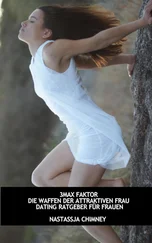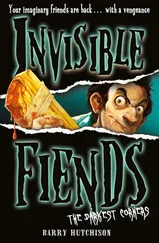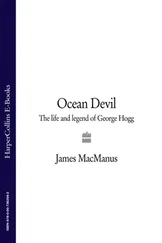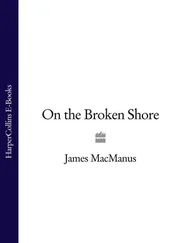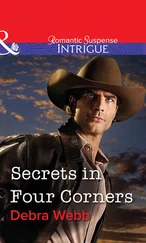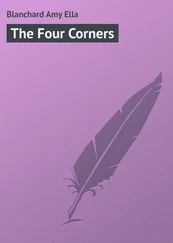Seumas MacManus - In Chimney Corners
Здесь есть возможность читать онлайн «Seumas MacManus - In Chimney Corners» весь текст электронной книги совершенно бесплатно (целиком полную версию без сокращений). В некоторых случаях можно слушать аудио, скачать через торрент в формате fb2 и присутствует краткое содержание. Город: New York, Год выпуска: 1930, Издательство: Doubleday, Doran & Company, INC., Жанр: Сказка, на английском языке. Описание произведения, (предисловие) а так же отзывы посетителей доступны на портале библиотеки ЛибКат.
- Название:In Chimney Corners
- Автор:
- Издательство:Doubleday, Doran & Company, INC.
- Жанр:
- Год:1930
- Город:New York
- ISBN:нет данных
- Рейтинг книги:5 / 5. Голосов: 1
-
Избранное:Добавить в избранное
- Отзывы:
-
Ваша оценка:
- 100
- 1
- 2
- 3
- 4
- 5
In Chimney Corners: краткое содержание, описание и аннотация
Предлагаем к чтению аннотацию, описание, краткое содержание или предисловие (зависит от того, что написал сам автор книги «In Chimney Corners»). Если вы не нашли необходимую информацию о книге — напишите в комментариях, мы постараемся отыскать её.
In Chimney Corners — читать онлайн бесплатно полную книгу (весь текст) целиком
Ниже представлен текст книги, разбитый по страницам. Система сохранения места последней прочитанной страницы, позволяет с удобством читать онлайн бесплатно книгу «In Chimney Corners», без необходимости каждый раз заново искать на чём Вы остановились. Поставьте закладку, и сможете в любой момент перейти на страницу, на которой закончили чтение.
Интервал:
Закладка:
Seumas MacManus
In Chimney Corners
Our folk-tales
In those days Ireland had many Kings and Queens, and was populated by good people. It was not bounded by the sea; all around it was a strange country in which, at rare intervals, arose many-windowed castles inhabited by Giants, Kings, Queens, or beautiful Princesses. On occasions, others are acknowledged; as, when the boy from Ireland fought the dragon, or when his marriage with the Princess was celebrated. The mysterious population which turned up at these times was not whilst he had fared forward on his long and lonely journey, with, at most, a single habitation punctuating each day’s progress. Whence, then, this population came, and whither it went, I know not; I never knew; for, no further account is taken of it.
Sometimes the young men of Erin sought adventure in their own land, where were both in plenty. But oftener they went away into the land of mystery, the Country Beyond. They were fearless, these boys, and earned the reward. Some day, long after his kindred had concluded that he was killed or enchanted, the adventurer, maybe, emerged again from the Mysterious Land, with fortune and a beautiful damsel, and with such tales of wonder as set off all the other strapping young fellows who had not yet asked their mother’s blessing and gone forth.
Even down to the days of my childhood the Country Beyond still was. Every morning I saw the circle of hills that shut it out. On many, many, bleak and eerie days, when I, herding on our hill, crouched and hugged myself in the cosy shelter of a lone thorn, I watched and watched the rim of those hills, and was filled with wonder, and with longing for the day when I should be able to climb them, and drop into the Land of Adventure. And once in those days, I remember—and the strange sensation is still with me—how, having gone a far journey to the Cormullion uplands after a strayed wether, I saw the tops of the hills of the Country Beyond.
The day came when I did climb, and climb, to the rim, and look over. And lo! the Land of mystery had vanished. I can feel the ache at my heart even yet. That the land I sought had been there when I was young and innocent, I know. But I had not realised that, year by year, it was melting into the unseen; till with painful suddenness I discovered it was no more.
With us, new folk-tales are being enacted every day. Our Irish boys still rise up and go away to a far land and strange to push their fortune. There are fiery dragons in that land, too, and fell giants, with whom our poor boys struggle sore. There cannot be any princesses there, though; or, the cailins at home are better than the princesses abroad; for, when our boys come back with the bags of gold—just as in the stories—they have not damsels also. Jamie Ruadh MacLaughlin of Meenacalliay came back, the pockets of his shop-clothes filled with the gold, and married Rossha MacDiarmuid of the Alt Beag; Myles Griffin of the Haugh, as grand as a king, and every bit as proud, came, and took handsome Grania MacGroarty. I could name a long list of others who did likewise.
In the old folk-tales only our boys went off. But now our poor girls, too, must go. Their mothers cry; and when we are on our knees at night, saying the Rosary, we always pray for the girls and boys who are in the strange land.
Some of them come back again.
Some of them do not find their fortune. They never come. Their mothers in Ireland still cry. The door is open and the hearth bright. If this book happen into the hands of any of these their tears will moisten its merriest page; for, . . . they shall remember . . . They shall remember.
Mary Mother, smooth their rugged road, strengthen their failing hearts, and soften to them the heart of the stranger.
SEUMAS MACMANUS.
Tales
To Our
Brave Boys and Girls
who have faired forth from their homes,
travelling away and away, far further than I could
tell you, and twice further than you could
tell me, into the Strange Land Beyound,
to push their fortune
THIS BOOK
Billy Beg and the Bull
ONCE on a time when pigs was swine, there was a King and a Queen, and they had one son, Billy, and the Queen gave Billy a bull that he was very fond of, and it was just as fond of him. After some time the Queen died, and she put it as her last request on the King that he would never part Billy and the bull, and the King promised that, come what might, come what may, he would not. After the Queen died the King married again, and the new Queen didn’t take to Billy Beg, and no more did she like the bull, seeing himself and Billy so thick . But she couldn’t get the King on no account to part Billy and the bull, so she consulted with a hen-wife what they could do as regards separating Billy and the bull. “What will you give me,” says the hen-wife, “and I’ll very soon part them?” “Whatever you ask,” says the Queen. “Well and good then,” says the hen-wife, “you are to take to your bed, making pretend that you are bad with a complaint, and I’ll do the rest of it.” And, well and good, to her bed she took, and none of the doctors could do anything for her, or make out what was her complaint. So the Queen axed for the hen-wife to be sent for. And sent for she was, and when she came in and examined the Queen, she said there was one thing, and only one, could cure her. The King asked what was that, and the hen-wife said it was three mouthfuls of the blood of Billy Beg’s bull. But the King wouldn’t on no account hear of this, and the next day the Queen was worse, and the third day she was worse still, and told the King she was dying, and he’d have her death on his head. So, sooner nor this, the King had to consent to Billy Beg’s bull being killed. When Billy heard this he got very down in the heart entirely, and he went doitherin’ about, and the bull saw him and asked him what was wrong with him that he was so mournful, so Billy told the bull what was wrong with him, and the bull told him to never mind, but keep up his heart, the Queen would never taste a drop of his blood. The next day then the bull was to be killed, and the Queen got up and went out to have the delight of seeing his death. When the bull was led up to be killed, says he to Billy, “Jump up on my back till we see what kind of a horseman you are. Up Billy jumped on his back, and with that the bull leapt nine mile high, nine mile deep and nine mile broad, and came down with Billy sticking between his horns. Hundreds were looking on dazed at the sight, and through them the bull rushed, and over the top of the Queen, killing her dead, and away he galloped where you wouldn’t know day by night, or night by day, over high hills, low hills, sheep-walks, and bullock-traces, the Cove of Cork, and old Tom Fox with his bugle horn. When at last they stopped, ”now then,“ says the bull to Billy, ”you and I must undergo great scenery, Billy. Put your hand,“ says the bull, ”in my left ear, and you’ll get a napkin, that, when you spread it out, will be covered with eating and drinking of all sorts, fit for the King himself.“ Billy did this, and then he spread out the napkin, and ate and drank to his heart’s content, and he rolled up the napkin and put it back in the bull’s ear again. ”Then,“ says the bull, ”now put your hand into my right ear and you’ll find a bit of a stick; if you wind it over your head three times, it will be turned into a sword and give you the strength of a thousand men besides your own, and when you have no more need of it as a sword, it will change back into a stick again.“ Billy did all this. Then says the bull, ”At twelve o’clock the morrow I’ll have to meet and fight a great bull.
Читать дальшеИнтервал:
Закладка:
Похожие книги на «In Chimney Corners»
Представляем Вашему вниманию похожие книги на «In Chimney Corners» списком для выбора. Мы отобрали схожую по названию и смыслу литературу в надежде предоставить читателям больше вариантов отыскать новые, интересные, ещё непрочитанные произведения.
Обсуждение, отзывы о книге «In Chimney Corners» и просто собственные мнения читателей. Оставьте ваши комментарии, напишите, что Вы думаете о произведении, его смысле или главных героях. Укажите что конкретно понравилось, а что нет, и почему Вы так считаете.


